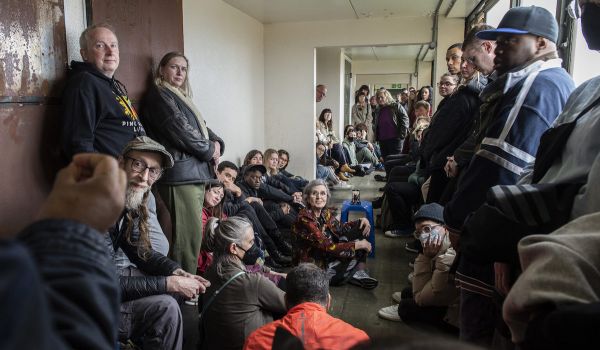The EU recently unveiled their proposal for attracting “the best and the brightest” immigrants to the continent. And like most immigration-related material, it’s riddled with a host of problems.
According to International Herald Tribune, the so-called “Blue Card Plan” calls for “admission of an additional 20 million Asian, African and Latin American workers in the next two decades. EU officials said they hoped the proposal would divert the flow of skilled migrants from developing countries who have been choosing the United States over Europe.” If unanimously agreed upon by the EU states, the blue card would offer candidates a fast-track procedure to obtain work permits, as well as offering housing and funding.
As expected, the proposal has already been met with criticism. Moroccan international economic law professor Tajeddine El Husseini says, “This is a new form of colonisation, of discrimination, and it will be very hard to find support for it among southern countries.” South African Finance Minister Trevor Manuel has called the process a “self reinforcing, deteriorating spiral”. There is also the question of how Europe would continue to handle the influx of unskilled, mostly illegal workers that have come seeking jobs and inclusion in the EU’s vaunted social safety net.
The last two decades have been characterized by worldwide diaspora, and countries like Cape Verde and El Salvador now have as many people living outside the country as in it. Remittances have also come to play a powerful role in economies that have been devastated by colonialism, civil war, or natural disasters. Mexico, for example, benefits annually from upwards of 20 billion dollars sent from abroad.
While I’m entranced by the potentialities offered by migration and transnationalism, I’m not in favor of diaspora that is dictated by economic necessity, or by whimsical policies that create a divide between which immigrants are acceptable and which ones aren’t. Furthermore, given the extent to which the West has profited from the labor and materials of the Global South, I think this may the last thing that places like Africa and Latin America need. Which reminds me of a 2005 op-ed by Paul Theroux in the New York Times, who reflected on his experience as a Peace Corps Volunteer in Malawi, and argues that the last thing Africa needs is more people leaving. He cites a World Bank study which confirms that “emigration to the West of skilled people from small to medium-sized countries in Africa has been disastrous.” He also compares economically troubled developing nations to the situation that Ireland faced in the 20th century. He writes that “the Irish found that education, rational government, people staying put, and simple diligence could turn Ireland from an economic basket case into a prosperous nation. In a word…they have proved that there is something to be said for staying home.”
This urbanite wholeheartedly in human mobility; the melting pot of London is my favorite city in the world, and I can’t imagine San Francisco without Chinatown. In fact, I even recently argued that Philadelphia should embark on a marketing campaign to attract immigrants to the city. So the question becomes then, how do we ensure that cities remain centers of cosmopolitanism, while formulating policies that grant people agency in their quest towards life, liberty and happiness? Would a two-year guest worker program suffice? A radical apprenticeship program to learn “best practices” in other cities? Equal respect given to the contributions of skilled and unskilled immigrants?
Or maybe we’ll have to forgo some degree of diversity until we’ve reached a point where people have a decent shot at safety and prosperity…in their own countries.








